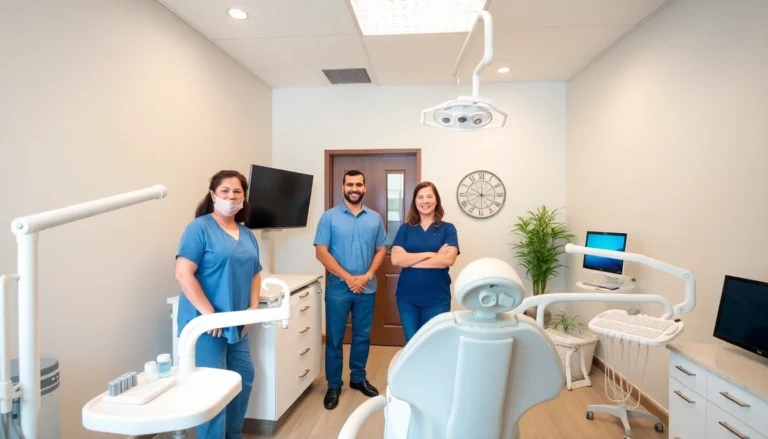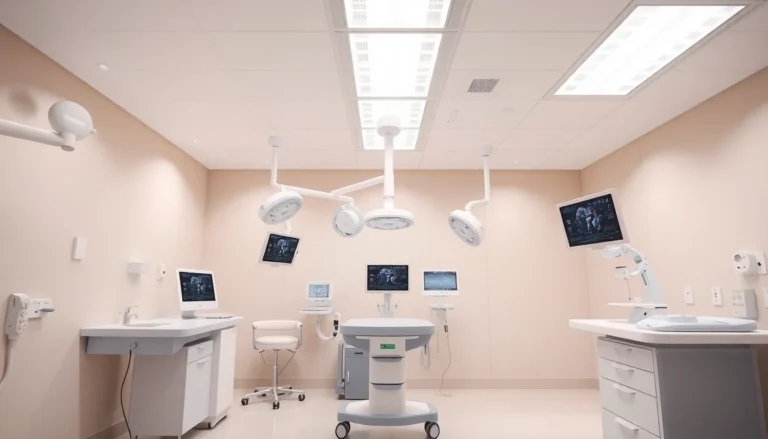
Understanding Drug Addiction and Its Impact on Health
Drug addiction, also known as substance use disorder (SUD), is a complex condition characterized by compulsive drug seeking and use despite harmful consequences. It affects the brain’s structure and function, disrupting normal behavior, cognition, and emotional regulation. Globally, millions grapple with this issue, and Kyiv is no exception. According to recent statistics, approximately 1.5 million Ukrainians use illicit or prescription drugs, with annual growth rates ranging between 8-10%. Alarmingly, the age of first substance use is decreasing, leading to an increased prevalence among adolescents and young adults. Recognizing and understanding the nature of addiction is vital to implementing effective treatment strategies. For an in-depth look at the diagnosis and comprehensive treatment options, visit treatment for drug addiction.
Defining Substance Use Disorder and Its Symptoms
Substance Use Disorder (SUD) manifests through a range of behavioral, physical, and psychological symptoms. Behavioral signs include craving, unsuccessful efforts to quit, neglect of responsibilities, and continued use despite social or interpersonal problems. Physical symptoms encompass tolerance—requiring increased amounts to achieve effects—and withdrawal symptoms such as sweating, nausea, tremors, and agitation on cessation. Psychologically, individuals may experience intense cravings, anxiety, depression, and cognitive impairments affecting decision-making. Early detection of these symptoms greatly improves treatment outcomes. Recognizing these signs in loved ones or oneself can be challenging but is a critical step toward intervention and recovery.
The Physical and Psychological Effects of Drug Addiction
Physiologically, drug addiction leads to significant organ damage, including liver cirrhosis, cardiovascular diseases, respiratory issues, and neurological impairments. For example, long-term opioid use can cause hormonal imbalances, while stimulants like methamphetamine harm the brain’s dopamine pathways, resulting in cognitive deficits. Psychologically, addicted individuals suffer from mood disorders, anxiety, paranoia, and decreased motivation. These effects are often compounded by social consequences such as strained relationships, employment issues, and legal problems. The cascade of health complications underscores the importance of timely, comprehensive treatment tailored to individual needs to mitigate long-term damage.
Statistics and Trends: Why Kyiv Needs Effective Treatment Programs
Kyiv faces a rising tide of drug dependency, mirroring global trends but with unique local challenges. The widespread availability of narcotics, socio-economic stressors, and limited awareness contribute to escalating addiction rates. Municipal health authorities report that a significant portion of the youth and unemployed populations are vulnerable to substance use. The societal costs include increased crime rates, health burdened hospitals, and familial breakdowns. Addressing this crisis requires targeted programs that combine medical, psychological, and social interventions. The experienced team at the center «Троицкий» leads the way in providing evidence-based treatment to combat Kyiv’s substance addiction issues effectively.
Stages and Methods of Treatment for Drug Addiction in Kyiv
Initial Detoxification and Stabilization Techniques
The first, and often most challenging, phase of treatment is detoxification—commonly called detox. This process involves clearing the drug from the patient’s body and managing withdrawal symptoms, which can be severe or even life-threatening depending on the substance. Methods include traditional detox, where the individual is hospitalized for close monitoring, and innovative approaches like outpatient detox and ultra-rapid detox (UROD). At the center «Троицкий», detox is performed under medical supervision, using tailored medication regimens combined with supportive therapies to minimize discomfort and ensure safety. The goal is to stabilize the patient physically before moving to psychological interventions.
Psychological and Behavioral Therapy Approaches
Following detox, addressing the psychological roots of addiction is essential. Cognitive-behavioral therapy (CBT) helps patients identify and modify destructive thought patterns influencing drug use. Motivational interviewing enhances their commitment to recovery by exploring ambivalence about change. The center «Троицкий» employs the renowned 12-step program, inspired by Alcoholics Anonymous, fostering peer support and spiritual growth alongside professional psychotherapy. Other interventions include art therapy, group support sessions, family therapy, and specialized counseling to resolve underlying issues like trauma, low self-esteem, or familial conflicts that often precipitate substance abuse. This multi-faceted approach empowers patients with coping skills to resist cravings and manage life stresses without resorting to drugs.
Long-term Rehabilitative Strategies and Support Systems
Recovery is a long-term journey. Sustained support after initial treatment reduces relapse risk and helps reintegration into society. The «Троицкий» center offers personalized long-term rehabilitation programs combining psychological therapy, social support, vocational training, and community engagement. Pharmacotherapy, including medications like methadone or buprenorphine, may be utilized under strict medical supervision to manage opioid dependence. Family inclusion and relapse prevention plans further solidify progress. Advanced approaches such as Gashal therapy and culturally relevant interventions are also part of the holistic recovery process. Monitoring and follow-up care, including peer mentorship and community activities, are crucial for maintaining sobriety and fostering a healthy, productive lifestyle.
Personalized Treatment Plans at «Троицкий» Center
Assessing Patient Needs and Tailoring Programs
Every patient’s journey through addiction is unique. The «Троицкий» team begins with a comprehensive assessment—covering medical history, substance pattern, psychological state, and social environment—to develop an individualized treatment plan. This assessment allows for the deployment of the most effective combination of detoxification, psychotherapy, medication-assisted treatment, and social support tailored to the patient’s specific circumstances. Regular reviews and adjustments ensure optimal progress and address emerging needs.
Integrating Medication-Assisted Treatment and Psychotherapy
Medication-assisted treatment (MAT) forms a cornerstone of effective recovery, especially for opioid dependency. Medications like methadone, buprenorphine, or naltrexone are used to reduce cravings and withdrawal symptoms, enabling patients to focus on behavioral changes. Psychotherapy complements this by addressing psychological triggers and developing resilience. The dual approach enhances the chances of successful long-term sobriety. At «Троицкий», medications are administered under strict medical supervision, with careful monitoring to prevent misuse or adverse effects. The integration of MAT and therapy aligns with international standards, ensuring safe and effective treatment pathways.
Ensuring Confidentiality and Comfort During Recovery
Trust and privacy are vital during the treatment process. «Троицкий» guarantees full confidentiality of patient records and interactions, creating a safe space for vulnerable individuals. The center emphasizes a respectful, non-judgmental environment, with comfortable facilities and supportive staff trained to handle sensitive issues. Confidentiality fosters openness, vital for effective therapy, enabling patients to confront their addiction honestly and work towards lasting recovery without fear of stigma or exposure.
Benefits of Choosing «Троицкий»: Why Our Center Stands Out
Unique Techniques and Industry Experience
With over a decade of specialized experience in addiction medicine, «Троиткий» employs cutting-edge techniques validated globally. Our team includes top-certified narcologists, psychotherapists, and social workers combining evidence-based methods with personalized care. Innovative approaches such as Minnesota Model, 12-step integration, and comprehensive psycho-social programs set us apart. We continually update our protocols to incorporate the latest research, ensuring patients benefit from the most advanced care available.
Comprehensive Support: Family, Social, and Mental Health
Successful recovery depends on a supportive environment. We include family counseling, social adaptation training, employment assistance, and peer support groups in our programs. Educating families about addiction reduces stigma, improves communication, and enhances their ability to support the recovering individual. Additionally, we provide mental health services to address co-occurring disorders, such as depression or anxiety, that may hinder progress. The integrated support system aims to rebuild not only the individual but also their familial and social networks.
Affordable Prices and Flexible Payment Options
Addressing financial barriers is critical. «Троицкий» offers transparent pricing, with options adjusted to a patient’s needs and financial situation. We accept various payment methods, including insurance coverage where applicable, and provide installment plans for longer stays. Our goal is to make quality treatment accessible, removing hurdles that prevent individuals from seeking help. Free initial consultations help ascertain the scope of care required and clarify costs upfront.
Getting Started: How to Access Treatment for Drug Addiction
Funding Your Recovery and Insurance Options
Financial concerns can be a barrier to treatment. Besides self-pay options, many insurance plans now cover parts of addiction treatment. The «Троицкий» center assists with insurance documentation and offers guidance on funding options. Additionally, government grants and social support programs may be available to eligible patients. Early consultation helps determine affordability and plan coverage accordingly.
Initial Consultation and Admission Process
Starting treatment is simple and discreet. Patients can contact us via phone or online form to arrange an initial assessment. During this session, our specialists evaluate the patient’s condition and discuss potential treatment pathways. Admission is conducted with complete confidentiality, respecting the individual’s privacy. We provide a supportive environment to ease anxiety and ensure readiness for the recovery process.
Follow-up Care and Reintroduction into Society
Recovery does not end with the completion of initial treatment. Continuous follow-up, outpatient support, and community involvement are essential. «Троицкий» offers ongoing counseling, relapse prevention programs, and social reintegration services. Our goal is to equip patients with the skills to lead productive, drug-free lives, fostering resilience to life’s challenges and reducing the risk of relapse. The transition back into society is carefully managed to ensure sustainable recovery.






